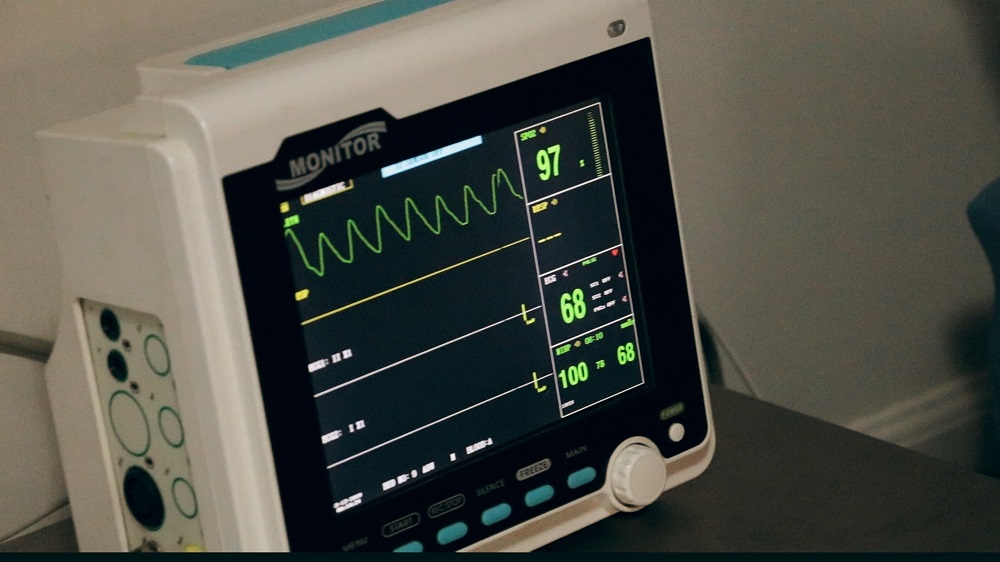The rapid integration of technology into healthcare has ushered in unprecedented advancements, improving patient outcomes, streamlining processes, and expanding access to care. However, as the healthcare industry embraces these innovative technologies, a critical and pressing concern comes to the forefront: the ethical implications surrounding patient privacy. This article digs deep into the complex landscape of healthcare technology ethics, examining the delicate balance between fostering innovation and safeguarding the privacy and confidentiality of patients.
The Promise and Potential of Healthcare Technology
Healthcare technology has demonstrated immense promise in transforming the way medical care is delivered. From Electronic Health Records (EHRs) and EMR solutions that centralize patient information to telemedicine platforms providing remote access to healthcare services, these innovations enhance efficiency, improve diagnostics, and offer personalized treatment options. Additionally, emerging technologies like artificial intelligence (AI), wearables, and genomic advancements hold the potential to revolutionize disease prevention, early detection, and precision medicine. The ethical dilemma arises as the industry navigates the fine line between leveraging these technological capabilities for the greater good and protecting the privacy rights of individuals.
The landscape of healthcare technology holds immense promise and potential, offering unprecedented opportunities to revolutionize patient care, diagnostics, and overall healthcare delivery. Electronic Health Records (EHRs) have emerged as a cornerstone, streamlining the storage and accessibility of patient information, providing seamless communication among healthcare professionals, and reducing the risk of errors due to traditional paper-based systems. The integration of telemedicine has brought about a paradigm shift in healthcare accessibility, providing patients with remote access to consultations, particularly vital in underserved or geographically isolated regions. This not only enhances the efficiency of healthcare delivery but also enhances the overall patient experience, reducing barriers to timely medical consultations.
Emerging technologies like artificial intelligence (AI) are poised to redefine healthcare by offering advanced analytics, predictive modeling, and personalized treatment plans. AI has the potential to analyze vast datasets, identify patterns, and equip healthcare providers to make more informed decisions. Wearable devices and health apps are enabling individuals to engage in their health management by monitoring vital signs, physical activity, and chronic conditions. The fusion of healthcare and technology holds the promise of a more patient-centric, preventive, and efficient healthcare system, ushering in an era where innovative solutions contribute to improved health outcomes as well as enhanced quality of life for individuals globally.
Read more: The New Frontier – Intersection of Healthcare & Gen AI
What is Patient Privacy in the Digital Age
The digitization of healthcare records, while improving accessibility and coordination of care, raises significant concerns about the security and privacy of patient information. Cybersecurity threats, data breaches, and unauthorized access pose serious risks to sensitive medical data. Ensuring robust cybersecurity measures and adherence to strict privacy standards like the Health Insurance Portability and Accountability Act (HIPAA) is imperative to maintain public trust in healthcare technology. Patients need assurance that their personal health information is safeguarded against misuse, and healthcare providers must navigate the ethical responsibility of being custodians of this highly sensitive data.
As healthcare increasingly transitions into the digital realm, concerns surrounding patient privacy have become paramount. The digitalization of health records, while fostering enhanced accessibility and coordination of care, raises significant ethical and security considerations. Cybersecurity threats, unauthorized access to sensitive medical information, and data breaches pose serious risks to patient privacy. Safeguarding patient data has become a complex challenge, requiring healthcare organizations to implement robust security measures, encryption protocols, and stringent access controls. Compliance with privacy standards like the Health Insurance Portability and Accountability Act (HIPAA) is a moral imperative in upholding the trust and confidence patients place in the healthcare system.

The ubiquity of health-related apps, wearables, and connected devices further amplifies the importance of protecting patient privacy in the digital age. Individuals are sharing an increasing amount of personal health data, from fitness metrics to real-time monitoring of chronic conditions, often through mobile applications. This influx of data into the digital ecosystem necessitates a careful balance between leveraging the potential benefits of this information for healthcare advancements and ensuring the privacy and security of individuals. Striking this balance requires a comprehensive and evolving approach to ethical considerations, including transparency in data usage, informed consent practices, and ongoing efforts to fortify digital defenses against evolving cybersecurity threats. As technology continues to advance, prioritizing patient privacy remains central to the ethical foundations of healthcare in the digital age.
How to Navigating the Intersection of Innovation and Ethics
As healthcare technology continues to evolve, the ethical considerations become more intricate. The advent of AI, for example, presents opportunities for predictive analytics, personalized treatment plans, and improved diagnostics. However, the ethical use of AI in healthcare demands transparency in algorithms, accountability for decision-making processes, and the mitigation of bias to ensure fair and equitable treatment for all patients. Striking the perfect balance between the potential benefits of innovation and the ethical responsibility to protect patient privacy requires ongoing dialogue, collaboration, and the development of comprehensive frameworks that guide the ethical implementation of technology in healthcare.
The intersection of healthcare innovation and ethics is a complex landscape requiring careful navigation to harness the benefits of technological advancements while upholding fundamental principles of patient care. Artificial intelligence (AI), for instance, presents unprecedented opportunities in healthcare, offering predictive analytics, personalized treatment plans, and improved diagnostics. However, the ethical considerations surrounding AI are substantial, demanding transparency in algorithms, accountability for decision-making processes, and the mitigation of biases to ensure fair and equitable treatment for all patients. Striking a balance between innovation and ethics mandates ongoing dialogue and collaboration among technologists, healthcare professionals, ethicists, and policymakers to establish comprehensive frameworks that guide the ethical deployment of technology in healthcare.
Read more: Navigating Digital Disruption and Innovation in Healthcare
Patient autonomy is another critical ethical consideration at this intersection. As technology facilitates remote monitoring, data-sharing, and the use of wearable devices, ensuring informed consent becomes paramount. Individuals must have a clear understanding of how their health data will be utilized, who will have access to the data, and the potential implications for their privacy. Equipping patients to make informed decisions about the use of their health data is not only an ethical imperative but also essential in preserving the trust between healthcare providers and those they serve. As the healthcare landscape evolves with technology, the ethical framework must evolve in tandem, ensuring that innovation is not only cutting-edge but also rooted in principles that prioritize patient well-being, autonomy, and privacy.
Informed Consent and Patient Autonomy
Respecting patient autonomy is a foundational ethical principle in healthcare, and this extends to the use of technology. Informed consent becomes particularly crucial in the context of data-sharing, remote monitoring, and the deployment of emerging technologies. Patients should be informed about how their data is being used, who will have access to it, and the potential implications for their privacy. Empowering patients to make decisions about the use of their health data is paramount to upholding ethical standards and preserving the trust between healthcare providers and those they serve.
Preserving patient autonomy is a fundamental ethical principle in healthcare, and in the era of advancing technology, it takes center stage in discussions around informed consent. As healthcare becomes increasingly digitized, individuals are asked to share their health data for various purposes, including research, remote monitoring, and personalized care plans. Informed consent, in this context, becomes a cornerstone of ethical practice, emphasizing the right of patients to understand and control how their personal health information is used. Healthcare providers bear the responsibility of ensuring that individuals are informed about the implications of sharing their data, the potential benefits, and any associated risks. This process empowers patients to make autonomous decisions about the use of their health information, fostering a relationship built on trust and respect.
Read more: Wearable Tech: A Promise to Revolutionize Healthcare
The complexity of healthcare technology requires a reevaluation and enhancement of traditional models of informed consent. Patients may now be presented with intricate choices related to data-sharing, artificial intelligence-driven diagnostics, and the use of emerging technologies in their care. With technology continuing to evolve, healthcare professionals must engage in ongoing communication with patients, ensuring that they remain informed about the evolving landscape of healthcare technology and its implications for their autonomy. The ethical commitment to informed consent not only safeguards patient rights but also reflects a broader shift towards patient-centered care, where individuals actively participate in decisions regarding their health, treatment, and the utilization of innovative technologies.

Read more: Why is Healthcare Data Quality Critical in the Age of AI
Strategies for Ethical Healthcare Technology Implementation
In navigating the ethical complexities of healthcare technology, implementing clear policies and guidelines becomes essential. Healthcare organizations must prioritize transparency, ensuring that patients understand how their data is used and who has access to it. Regular audits and assessments of cybersecurity measures are imperative to identify and address vulnerabilities proactively. Moreover, ongoing education for healthcare professionals about the ethical considerations surrounding technology use is essential to ensure a culture of responsible and patient-centered care.
In Conclusion
With healthcare technology continuing its relentless march forward, ethical considerations must be integrated into the very design and implementation of these technologies. Innovators, policymakers, and healthcare providers must collaborate to create a future where technology enhances care while prioritizing patient privacy and autonomy. Ethical frameworks that evolve with technological advancements, robust cybersecurity measures, and a commitment to patient-centered care will be the cornerstones of a healthcare system that embraces innovation responsibly, ensuring a balance between progress and the fundamental values of medical ethics. In doing so, the healthcare industry can build a future where technological innovation and patient privacy coexist harmoniously, fostering a trust-based relationship between healthcare providers and the individuals they serve.
SG Analytics, recognized by the Financial Times as one of APAC's fastest-growing firms, is a prominent insights and analytics company specializing in data-centric research and contextual analytics. Operating globally across the US, UK, Poland, Switzerland, and India, we expertly guide data from inception to transform it into invaluable insights using our knowledge-driven ecosystem, results-focused solutions, and advanced technology platform. Our distinguished clientele, including Fortune 500 giants, attests to our mastery of harnessing data with purpose and merging content and context to overcome business challenges. With our Brand Promise of "Life's Possible," we consistently deliver enduring value, ensuring the utmost client delight.
A leader in the Healthcare domain, SG Analytics is assisting healthcare companies to leverage the power of information. Contact us today if you are in search of efficient Healthcare solutions to make sound business decisions.
About SG Analytics
SG Analytics is an industry-leading global insights and analytics firm providing data-centric research and contextual analytics services to its clients, including Fortune 500 companies, across BFSI, Technology, Media & Entertainment, and Healthcare sectors. Established in 2007, SG Analytics is a Great Place to Work® (GPTW) certified company and has a team of over 1100 employees and has presence across the U.S.A, the U.K., Switzerland, Canada, and India.
Apart from being recognized by reputed firms such as Analytics India Magazine, Everest Group, and ISG, SG Analytics has been recently awarded as the top ESG consultancy of the year 2022 and Idea Awards 2023 by Entrepreneur India in the “Best Use of Data” category.









